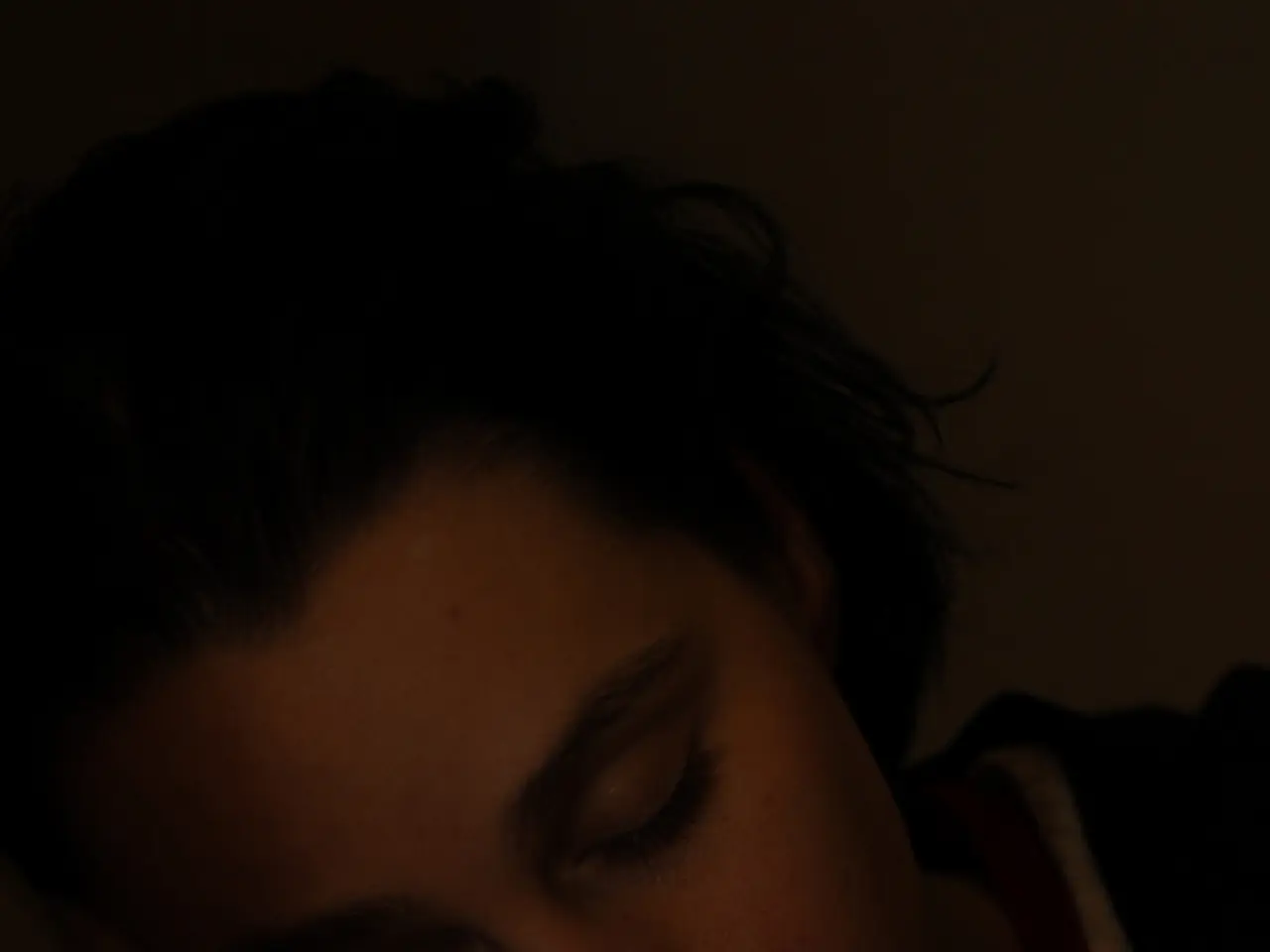Experiencing a rapid heartbeat upon awakening: Understanding its implications
A racing heart upon waking can be a common experience for many people, and while it is often not a cause for alarm, it is essential to understand the potential causes and when to seek medical attention.
One of the primary reasons for a racing heart upon waking is the body's natural release of cortisol, a stress hormone that helps you become alert and active. Elevated cortisol levels can increase heart rate, especially in the morning as part of your circadian rhythm.
Anxiety, stressful thoughts, and nightmares during sleep can also cause sudden spikes in heart rate, waking you up with a racing heart. In some cases, a higher level of a blood protein called PA1 in the morning can make blood "stickier," raising the risk of blood clots and potentially causing a racing heart.
For some, underlying medical causes may be responsible for a high heart rate upon waking. This could include low blood pressure combined with tachycardia, caused by factors like standing up quickly or underlying heart rhythm problems. People with certain heart conditions may also experience palpitations and a racing heart, especially if accompanied by dizziness, chest pain, shortness of breath, or fainting. These symptoms might precede heart attacks or other serious events.
High blood sugar (hyperglycemia), excessive alcohol consumption, iron deficiency anemia, and sleep deprivation can also lead to a rapid heart rate. Sleep apnea, a condition characterised by pauses in breathing during sleep, can lower oxygen levels, put extra stress on the heart, and cause a racing heartbeat.
Narcolepsy, a sleep disorder, can cause a person's heart rate to increase during sleep. Night terrors, a type of disturbing dream, can cause a person to wake up with a racing heart and physical symptoms such as respiratory difficulties, sweating, and shaking. Hormone changes during the menstrual cycle and menopause may also contribute to a racing heart upon waking.
It is crucial to seek help for any change in heart rhythm or heart rate as it can signal an underlying issue. If waking up with a racing heart is accompanied by symptoms such as chest pain or tightness, dizziness, fainting, shortness of breath, or unexplained fatigue, it warrants urgent medical evaluation. If episodes of racing heart are frequent, prolonged, or occur with low blood pressure or fainting, you should consult a healthcare provider to rule out heart rhythm problems and other underlying conditions. Sudden loss of consciousness (fainting) should be treated as a medical emergency unless previously diagnosed with a benign cause.
In conclusion, occasional racing heart on waking can be due to normal physiological changes or anxiety, but persistent or severe symptoms—especially if linked with chest pain or fainting—require prompt medical assessment to exclude serious heart conditions. If you are experiencing a racing heart upon waking, it is essential to monitor your symptoms and consult a healthcare professional if necessary.
- If you have atrial fibrillation (afib), a common heart arrhythmia, it can cause a racing heart upon waking.
- Type 2 diabetes, a chronic condition affecting multiple bodily functions, is often associated with a higher risk of cardiovascular diseases, which can lead to a quicker heartbeat.
- Bipolar disorder, a mental health condition, can cause sleep disturbances and racing hearts, especially during the manic phase.
- A racing heart upon waking can be a symptom of non-small cell lung cancer (NSCLC), especially in advanced stages when it affects the heart.
- Sleep apnea, a condition that disrupts sleep and lowers oxygen levels, can potentially cause a racing heart and other cardiovascular problems.
- Science has shown that certain medications, such as certain antidepressants and steroids, can increase the risk of sleep apnea and accordingly, lead to a racing heart upon waking.
- In workplace-wellness programs, initiatives promoting health and wellness, mental health, and men's health should include educating employees on the symptoms of a racing heart, along with other potential health issues.
- Womens-health discussion forums often include posts about racing hearts in relation to hormonal fluctuations during menstruation, pregnancy, or menopause.
- CBD (cannabidiol), a compound found in cannabis plants, is sometimes used as a natural treatment for various conditions, including anxiety and insomnia, which can potentially help reduce instances of a racing heart upon waking.
- Some individuals with skin-care sensitivities may experience a racing heart due to stress or anxiety triggered by skin irritations or rashes.
- Therapies and treatments for depression, such as cognitive-behavioral therapy, can help alleviate the symptoms of anxiety and sleep disturbances, and in turn, reduce heart rate variability, including episodes of a racing heart upon waking.
- Addressing sleep issues through lifestyle changes, such as improving sleep hygiene, managing stress, and practicing relaxation techniques like deep breathing exercises, can contribute to more consistent sleep patterns and a slower heart rate on waking.




